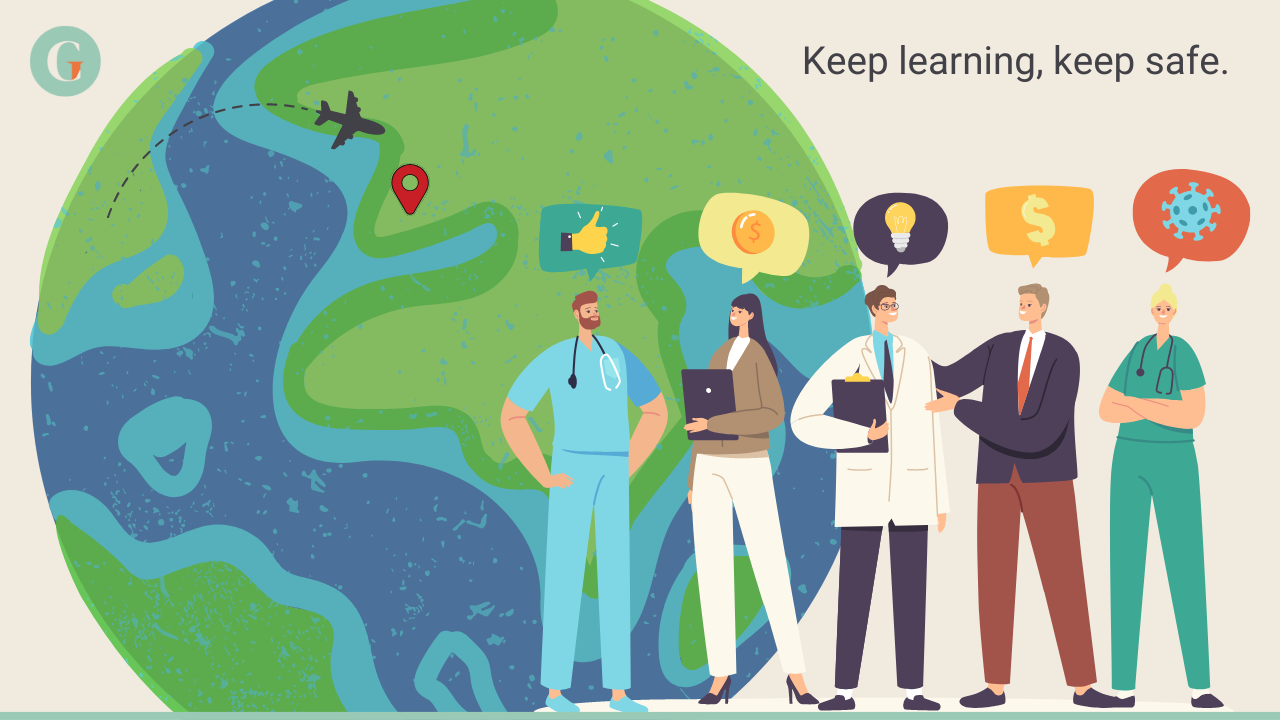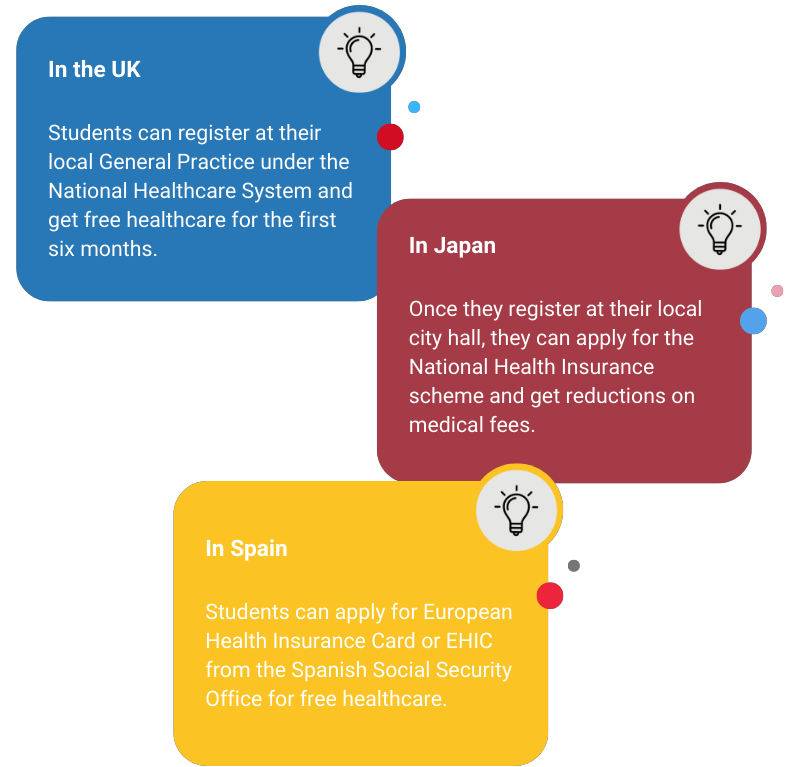10 Key Health & Safety Concerns for International Offices
Oct 18, 2022
Students abroad face numerous challenges. It is not just a matter of adjusting to a new culture and learning new styles of communication. (Although we know very well that these are important, too.) There is also a great number of logistics to deal with pre-departure, such as applying to a new school, taking care of visas and the actual traveling.
Once they arrive at their destination, students may not immediately realize that their success while abroad is linked to their well-being. Well-being is the combination of a person’s physical and psychological optimal conditions. As obvious as it may sound, every student is different and gets to their destination with unique histories, cultural backgrounds and identities. And those elements will directly inform their experience abroad.
On top of that, they need to keep in mind how external factors at their destination may impact their personal well-being. It can be a lot to keep in mind, for students as well as for universities and study abroad providers, but premium pre-departure preparation needs to be always mindful of students’ Health and Safety. Below we have broken down some of the major Health and Safety concerns for students abroad in 10 simple points.
10 Health and Safety Points of Concern
Health and Safety is guidance that helps you make sure that your students are aware of the risks involved in their travel abroad and are informed about the support that is available to them. The more they know, the more protected they will be.
On top of understanding the current regulations with regards to COVID-19 (for example, wearing masks and vaccination passes), in order to help your students safeguard their health, they need to to know how to contact a doctor to care for their physical, mental and sexual health. If they are going through a gender transition, they need to know where to access affirmative care that is understanding of their needs, and they need to know what the protocols are in the country if they are on long-term treatment, for example: diabetes, auto-immune diseases, or chronic mental health conditions.
To support their safety, on the other hand, they need to be made aware of the crime rate at their destination, and if the country they are about to visit is prone to earthquakes, typhoons or other potentially dangerous natural events. They need to know who to turn to in case they are a victim of physical or psychological abuse - in general or in relation to being part of an under-represented group. They also need to know how to take care of their personal data online so they are not unwillingly involved in criminal activities abroad. If a student is an asylum-seeker in the country, or if their documents do not match their chosen name because they are in the process of transitioning, they need to be made aware of what the general understanding on the matter is in order to make their journey easier and safer.
Destination-Specific Health & Safety for Study Abroad Experiences
Thinking about Health and Safety in a practical way is useful but we have to keep in mind that Health & Safety measures can vary greatly depending on where students travel to. Different countries may have completely different approaches to providing healthcare, to preventing COVID-19 and other endemic diseases like Monkeypox, but also to preventing crime and discriminatory behaviour and accessing affirmative care and sexual health.
This makes a pre-packaged, one-fits-all kind of Health and Safety training hard (if not impossible) to apply to multiple study abroad destinations. Not only that - if COVID-19 has taught us something, it is that key regulations that affect everyday life in a country can drastically change from one day to another. Failing to keep up with these changes can negatively impact students’ experience abroad.
Students abroad need reliable, up-to-date information on Health and Safety that is specific to their destination, and relates to their identity. That way they can be prepared to successfully face the challenges that await them, knowing that they are supported. 
By partnering with CulturaGo, your university or organization can better support their students. Our online cultural preparation courses contain an ever-growing wealth of destination-specific information written by experts that covers not only the traditions and etiquette of country, but also how to get in touch with a doctor there, who to turn to in case of discrimination or abuse as well as how to connect with others and communicate your problems.
Keep learning, keep safe.
P.S. In our upcoming post, we will discuss the importance of Health and Safety guidance that is inclusive of all identities. Stay tuned!
If you are interested in finding out more about CulturaGo courses or have any questions, please contact us and get in touch. We would love to chat further.












